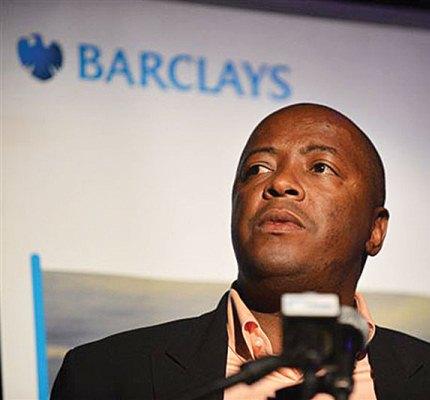Kenana: A Promise of Sweetness
The Kenana sugar project, inaugurated by President Jaafar Nimeiri in 1975, aimed to be the biggest integrated sugar plant in the world. With 40,000 hectares of prime irrigable land, a state-of-the-art factory, and new transport infrastructure, Kenana promised to meet the demands of Sudanese people’s famous sweet tooth. For five years the factory produced next to nothing, becoming one of the most notorious white elephants of the Nimeiri era. Only in 1985 did it begin operating at near its potential, and recently it has been touted as a great success, surpassing its expected output. But Sudanese complain that its multinational shareholders insist on exporting the best sugar for foreign consumption and hard currency, leaving Sudanese markets still reliant on imported sugar.
What has come out of Kenana in the last few days also promises sweetness, but the real test will be whether the product is palatable when presented to the people of Darfur.
The topic is the Sudan People’s Initiative for Darfur, launched in Khartoum on 16 October which has held its meetings in Kenana over the following days. It is an effort to bring the Sudanese political class together to find a political solution to the Darfur crisis. Although 60% of the 208 participants hailed from Darfur, the initiative is essentially an establishment effort, dominated by the NCP, Umma Party and SPLM. That’s not necessarily a bad thing. It is important for the Government of National Unity and the broader Northern political establishment to overcome its denial of the extent of the Darfur crisis, reflect openly on the mistakes that the government has made, and offer some serious political concessions. The test will be what happens next: can the initiative become inclusive, and will the positions proposed by the Kenana conference become binding on the NCP?
There are many good reasons to be skeptical about domestic NCP initiatives. This one was initiated in the days after the 14 July ICC public application to arrest Pres. Omar al Bashir. Originally, the initiative was to be headed by Sadiq al Mahdi, but disagreements among the parties meant that the chairmanship reverted to Bashir. Preparation was inadequate and influential Darfurian civil society figures rejected the meeting as a farce.
But it would be premature to write it off. The NCP has good reason to move it ahead and the signs from Kenana are encouraging. With its back to the wall, the NCP cannot afford to fight both the international community and its domestic opposition, and it has chosen to make its concessions at home, not abroad. The Kenana meeting was remarkable for its frankness, and the cordiality with which participants””including Bashir””referred to the leaders of the armed movements as “˜our brothers.’ This kind of effort””to debate what went wrong in Darfur and what the government needed to offer to achieve peace””should have occurred three or four years ago, in advance of the final round of Abuja negotiations, so that the delegation there truly represented the Government of National Unity. It’s later, but at least it’s happening.
Along with many civil society actors, several political parties including the Communists and Turabi’s PCP, were absent. The conference seemed resolved on reaching out and including them. Let’s see if that happens.
More important, however, is the next step of consulting with a wide range of Darfurians. Administrators from the three states and Native Administration leaders from Darfur were all present at Kenana””and expressed strong views, often vigorously critical of the NCP””but there are many other Darfurians who have not been part of the process and are deeply distrustful of it. The conference asked the AU-led Darfur-Darfur Dialogue and Consultation to take the recommendations for discussion among the Darfurians. This is essential. It must also be done right””patiently, in a context that allows for free expression of all views, and including people in IDP camps, refugee camps, non-government held areas, and in the diaspora. The leaders of the Sudan People’s Initiative shouldn’t expect instant acclaim or acceptance, and must be ready to listen long and hard and amend their proposals accordingly, before consensus is reached.
What is encouraging is that the Kenana debates and recommendations are significant. In the committee on political solutions, chaired by Vice President Ali Osman Taha, the sentiment was strongly in favour of a single region for Darfur. A threat of new violence made by a militant NCP member was brushed aside by Ali Osman, who told the man to cease talking. The problems of another layer of administration were outweighed by the political importance of recognizing Darfur’s unique historic identity. Will the high committee, about to review the discussions and present its recommendations, support the proposal for a single Darfur region? If it does, this is a major concession to the popular demand of Darfurians, and a breakthrough in any negotiations with the movements.
Similarly, major concessions on awarding a vice presidential post to Darfur, on individual compensation, and on reform of Native Administration to make it independent of the ruling party, were all pushed by participants. In the security committee, the necessity of disarming the militias, establishing community police services, and cooperating with UNAMID were all insisted upon. The first test of the NCP’s seriousness will be whether these recommendations make it to the final report, to be completed on Thursday. The biggest test will be whether the NCP’s commitment to the outcomes lasts even when the ICC issues an arrest warrant for President Bashir.
Ultimately, the outcome of Kenana and the Darfur consultations should form the basis for the government’s negotiating position at the envisaged peace conference in Doha, Qatar. What is most likely to derail this promise is haste and over-ambition. It will take months to conclude the preparations necessary for a successful meeting in Doha. The NCP wants to move expeditiously, chiefly because it sees a peace deal as a powerful card against the ICC. But linking the Doha timetable to the ICC would be a recipe for another failure: the main lesson of all Sudanese peace processes is that they must be done right, not right away.
Kenana is, at minimum, an expression of serious political debate. It is a challenge to the armed movements and other Darfurians to also think and act politically, focusing on what is needed to obtain a political settlement.
The Kenana conference has produced a sweet political scent. That’s a reason for cautious optimism.





